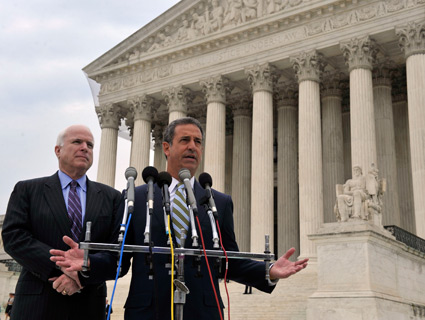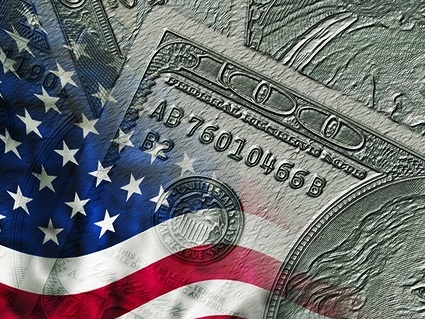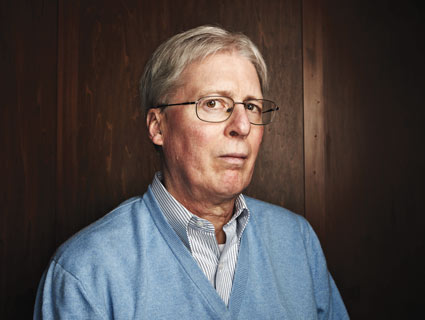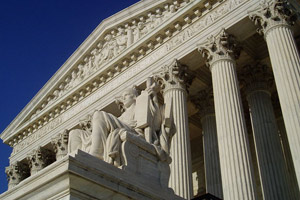
Sens. John McCain (R-Ariz.) and Russ Feingold (D-Wisc.) at the Supreme Court following arguments in Citizens United v. Federal Election Commission, on January 21, 2010. Jay Mallin/Zuma
The Los Angeles city council wants to restore some semblance of sanity to the wacky, post-Citizens United world of campaign finance. A 2010 Supreme Court decision that’s become synonymous with dark money’s pull on elections, Citizens United allows corporations to spend unlimited amounts on political campaigns through (allegedly) unaffiliated outside spending groups. From the Wall Street Journal:
The L.A. City Council is set vote on a resolution Tuesday that calls on Congress to topple [the Citizens United decision] with an amendment to the U.S. Constitution establishing that only living persons, not corporations, are endowed with constitutional rights and that money is not the same as free speech, according to a statement from the group MoveToAmend.org, which, as its name suggests, is geared to that aim.
The resolution before the council cites Supreme Court Justice Hugo Black’s 1938 dissenting opinion in Connecticut General Life Insurance Company v. Johnson, in which he stated “I do not believe the word ‘person’ in the Fourteenth Amendment includes corporations.”
The resolution also states that the Citizens United decision “supersedes state and local efforts to regulate corporate activity in their elections.”
As the Journal reports, defenders of the Citizens United decision often cite the first amendment in the face of criticism. According to the libertarian-leaning New American, attacks on the decision are attacks on the free speech of “small business and citizens groups,” which seek to participate in the political process.
Those arguments aren’t fazing civic leaders in Los Angeles, or in Madison and Dane County, Wisconsin, Missoula, Montana, and Boulder, Colorado, which have all passed measures similar to the one under consideration in Los Angeles, the Journal reports. And they’ve been heard in Washington: Sen. Tom Udall (D-NM) offered up a constitutional amendment to overturn Citizens United in November.
As Andy Kroll has reported, its been mostly Republican-leaning groups like the Karl Rove-backed Crossroads GPS that have cashed in on the fundraising benefits of Citizens United. But Democratic-leaning groups like American Bridge 21st Century, an opposition-research hub, and Priorities USA, a group focused on reelecting President Obama, are in the game for 2012, meaning that dark money is no longer an explicitly partisan issue. Both parties benefit from Citizens United now. Which begs the question of whether old-fashioned civic action really has a shot of stemming the tide against dark money.
But LA is no Missoula. The collective voice of a major American city—speaking on such a watershed issue—will likely carry weight, even in Washington.








